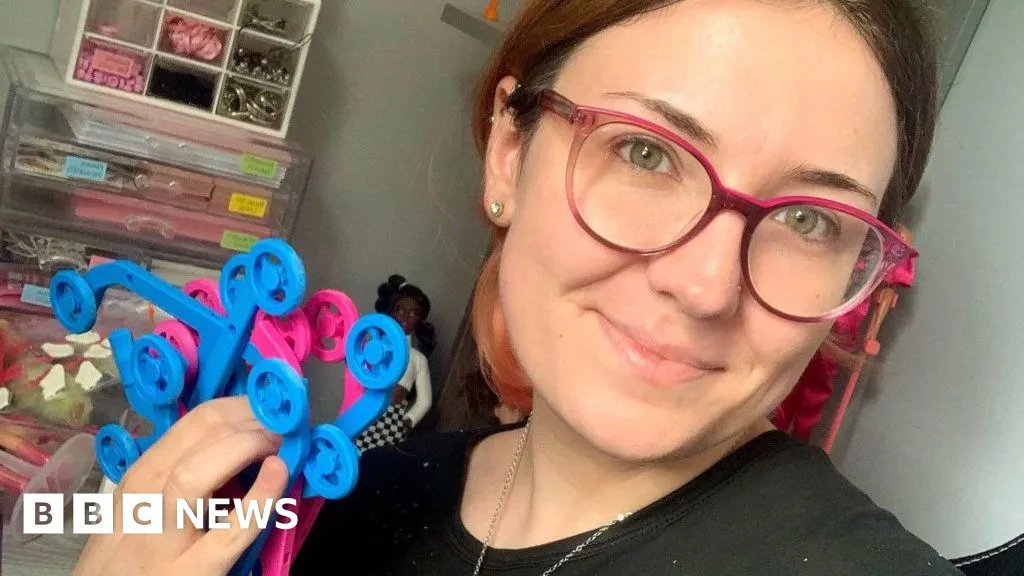A woman who creates miniature mobility aids and medical accessories for dolls is launching a new range of powerchairs and scooters for the figurines.
Grace True, from Sheffield has been making items such as walking sticks, ostomy bags and wheelchairs for toys since 2023.
The 29-year-old, who has fibromyalgia and uses a powerchair herself, said she had only felt confident enough to use mobility aids after seeing others use them, something she said had "changed my life".
"Children seeing a doll using an aid can give them the confidence to use the things they need to benefit them. And people seeing them more often can eliminate biases and stigmas early," she added.
Ms True, who runs Disabled Dolly, is working with 3D design software company Solidworks to create the new chairs and mobility scooters.
"I myself use a powerchair, so I understand how life-changing something like that can be," she said.
"It's something I've wanted to make since day one. To finally create that will be the biggest achievement for Disabled Dolly to date and, personally, it will be really wonderful."
She said she hoped the business would show what was possible in the industry and "drive the narrative for change" in representing disabilities.
"If I can see the importance and make it possible, then why aren't the larger doll companies doing more?" she added
James Taylor, strategy director at disability equality charity Scope, said Disabled Dolly was "paving the way" and urged other businesses to take inspiration.
"When disabled people don't see themselves represented, then talent and potential goes unrecognised and negative attitudes go unchallenged," he said.
The first wheelchair-using doll from Barbie-makers Mattel, Becky, was discontinued soon after its release in 1997 due to the chair being too wide for the door of the Barbie Dreamhouse.
The next Barbie dolls with disabilities were not released until 2019.
Ms True said: "When you are waiting for bigger companies to create things, you are waiting for them to deem something important or profitable enough to be made.
"So, a lot of children grow up not seeing themselves in their toys, and some adults are just experiencing that representation now."
Steven Morris, campaigns officer at disability charity Sense, said it was "wonderful" to now see children and adults represented in their play and hobbies.
"As a child almost no mainstream toys were aimed towards disabled children like me," he said.
"This can have an impact on your self-esteem, and lead you to feel even more isolated as a disabled child."
He said he would like disability-inclusive items to be seen as "necessary, not niche".
"Many of the children we support at Sense have dolls which reflect their disabilities, and it's clear from the looks on their faces how much this means to them," he added.
Disabled Dolly items are made to order, which Ms True said gave people more flexibility in creating a doll that feels similar to them.
"When you are acclimatised to seeing yourself everywhere as someone who is non-disabled, representation can be something that is taken for granted," she added.
"People underestimate the power dolls and toys have."
